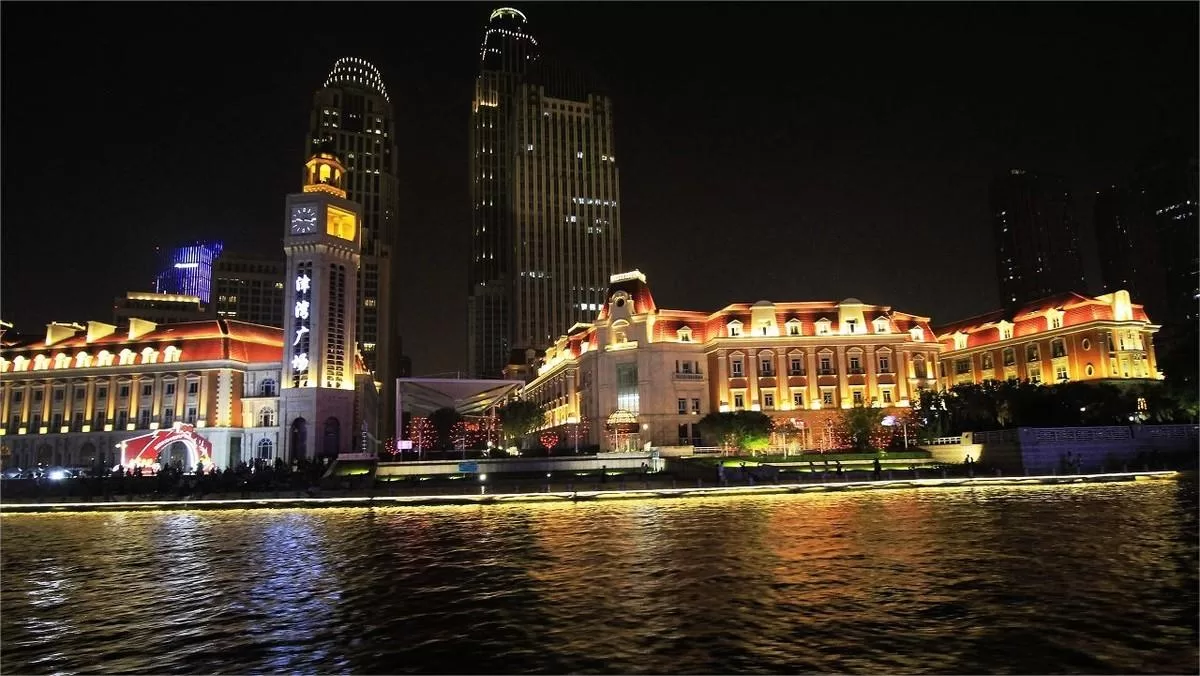The Haihe River, also known as the Hai River (海河), is a significant waterway located in the city of Tianjin, China. It holds immense historical, cultural, and economic importance for the region. Here is a detailed introduction to the Haihe River and its significance.
Location and Geography: The Haihe River stretches across the northern part of China and flows through Tianjin, the fourth largest city in the country. Originating from the Taihang Mountains in Shanxi Province, it covers a distance of approximately 1,329 kilometers (826 miles) before finally emptying into the Bohai Sea.
Historical Significance: The Haihe River has played a crucial role in the development of Tianjin and has witnessed significant historical events. It has served as a strategic waterway for trade and transportation since ancient times. The river has been essential for connecting Tianjin to other major cities and regions in northern China, including Beijing.
Cultural Significance: The Haihe River has deeply influenced the culture and lifestyle of the people in Tianjin. Along its banks, numerous historical sites, architectural marvels, and cultural landmarks can be found. Prominent examples include the Ancient Culture Street, Tianjin Eye Ferris Wheel, Tianjin Grand Theater, and the iconic Five Great Avenues.
Economic Importance: The Haihe River has been a crucial hub for commerce and trade throughout history. Tianjin, as a major port city, owes much of its economic growth and development to the river. The port area along the Haihe River is one of the busiest in China, serving as a vital gateway for international shipping and trade.
Urban Development: Tianjin has undergone extensive urban planning and development along the Haihe River. The riverfront has been transformed into an impressive skyline with modern buildings, parks, and recreational areas. It showcases a harmonious blend of traditional Chinese architecture and contemporary urban design, attracting visitors from around the world.
Riverfront Attractions: The Haihe River offers a range of attractions and activities for both locals and tourists. Strolling along the riverbanks, visitors can enjoy scenic views, beautifully landscaped parks, and various entertainment options. Boat cruises are a popular way to explore the river, providing a unique perspective of Tianjin’s landmarks and vibrant city life.
Environmental Conservation: Efforts are being made to improve the water quality and ecological balance of the Haihe River. Tianjin’s government, along with environmental organizations, has implemented measures to reduce pollution and protect the river’s ecosystem. These initiatives aim to ensure sustainable development and preserve the river’s natural beauty for future generations.
In conclusion, the Haihe River in Tianjin is a vital waterway that has played a significant role in the city’s history, culture, and economic development. With its blend of historical landmarks, urban development, and natural beauty, it stands as a symbol of Tianjin’s progress and prosperity.


